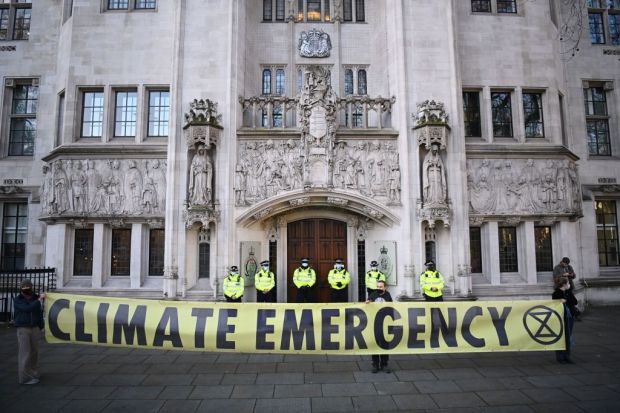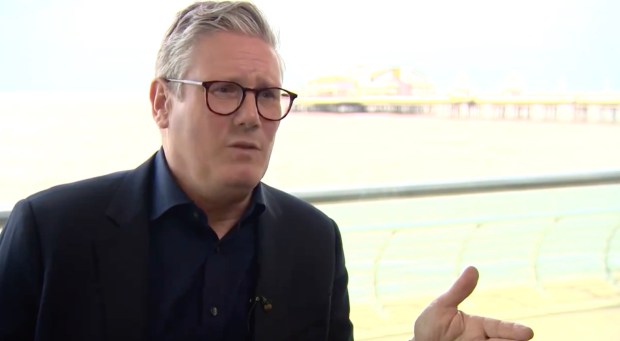Over almost 30 years in and around Westminster, I’ve noted some persistent and essential differences in the culture and mindset of our two big political parties. Tories generally want to win elections, and are prepared to subordinate pretty much all else to that objective. How else to explain their regular mutation into a new form of political life every few years? Today’s hybrid with a right-populist body and a technocrat-centrist head is just the latest example.
Labour, by contrast, always has an ambivalent attitude to winning. Buried in the party’s soul is the fear that winning means compromising on principles, and is therefore to be avoided. How else to explain those Labour people who still celebrate Jeremy Corbyn’s disastrous leadership as a golden age for the party?
Today, the pragmatic side of the Labour soul and organisation has taken the upper hand
In this context, Keir Starmer is fairly typical of the Labour mindset. He wants to win, but also wants to be principled. And like most of us, he can be a bit variable in his motivations and actions. We are all, if we’re honest, inconsistent.
Sometimes, then, Starmer is ruthless and cynical, promising the party membership Leftish red-meat policies to win the leadership. Then he quickly dumps them to tilt the party’s election offer back towards the centre. And sometimes he’s idealistic, listening to people like Gordon Brown about progressive dreams of constitutional reform and other nice ideas that mean nothing to most voters.
The two sides of Starmer and the Labour soul meet in the party’s spending plans. In almost every context, Labour frontbenchers are under cast-iron instruction not to promise extra spending. The party leadership – Starmer and Shadow Chancellor Rachel Reeves – have decided that Labour must above all project a convincing image of fiscal responsibility, or face an election dominated by Tory claims of Labour profligacy and ‘tax bombshells’.
Yet there is a very big exception to this austere approach: the £28 billion the party has promised to ‘invest’ (in other words, spend) on greening the economy. That’s a serious chunk of cash: it takes about 4p of basic rate income tax to raise £28 billion. So the pledge was always a big bet: that voters’ sympathy to environmental issues and openness to ‘green jobs’ arguments would outweigh their concerns about Labour and the public finances.
Now, I think there’s something in this. It is largely underreported at Westminster that public support for net zero and climate mitigation policies has been extremely strong and resilient in recent times.
Even though inflation is high and living standards falling, there has been no significant backlash against environmental policies that can add a bit to the cost of living. In 2013, a smaller inflationary squeeze drove David Cameron to dump his green agenda. Neither Boris Johnson nor Rishi Sunak have taken such dramatic action, despite much greater pressure.
They know that voters’ concerns about climate issues are deep-rooted. Scope for a climate-sceptic anti-green party in the UK is limited – just ask Nigel Farage, whose various attempts to make net zero into the next Brexit have so far failed.
So spending a bit of cash on some greenery isn’t purely idealistic for Labour – it could do some practical political good too. That is, if it’s shaped into a very clear retail message telling voters exactly what they’re going to get for that spending: how many jobs, how many towns transformed?
Yet Labour has not, so far, turned the £28 billion into that retail offer. Absent that messaging, it was looking more and more like an electoral liability, a chance for CCHQ to tell voters: ‘You’d pay loads more tax so Ed Miliband could buy some electric hovercrafts’ or similar.
And so, today, the pragmatic side of the Labour soul and organisation has taken the upper hand. Reeves has started to step back from the full £28 billion a year pledge. Instead it’ll be an aspirational target to hit by the end of the parliament.
‘Rachel Reeves waters down Labour £28 billion green investment pledge’ is the BBC headline on the story. That may well dismay some Labour purists, especially a younger generation of aides who want a bolder party that shakes off the careful, triangulating approach of their older, Blair-era colleagues.
But it will disappoint Conservatives who had hoped to use that spending pledge to paint Labour as spendthrift and dangerous. Those posters and tweets and headlines about ‘Red Ed’s Green Tax Bombshell’ just got harder to sell. In politics as in sport, it’s always wise to do the thing your opponent doesn’t want you to do.
So the real story here isn’t really about spending pledges or economic plans. It’s about attitudes and strategies and priorities. Starmer and Reeves are putting pragmatism above principles, because they want to win. That is not a sufficient condition of taking power, but it is a necessary one.
Got something to add? Join the discussion and comment below.
Get 10 issues for just $10
Subscribe to The Spectator Australia today for the next 10 magazine issues, plus full online access, for just $10.




















Comments
Don't miss out
Join the conversation with other Spectator Australia readers. Subscribe to leave a comment.
SUBSCRIBEAlready a subscriber? Log in